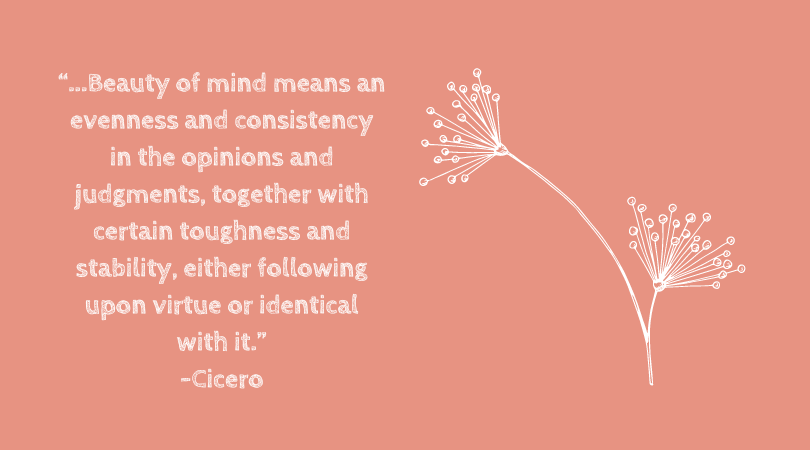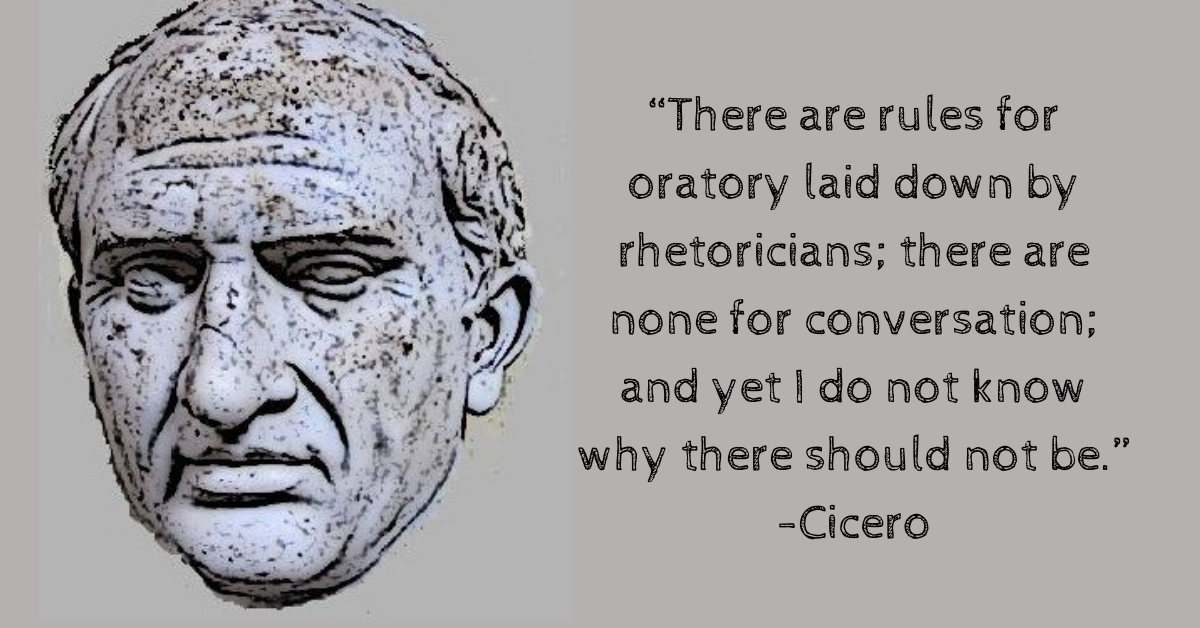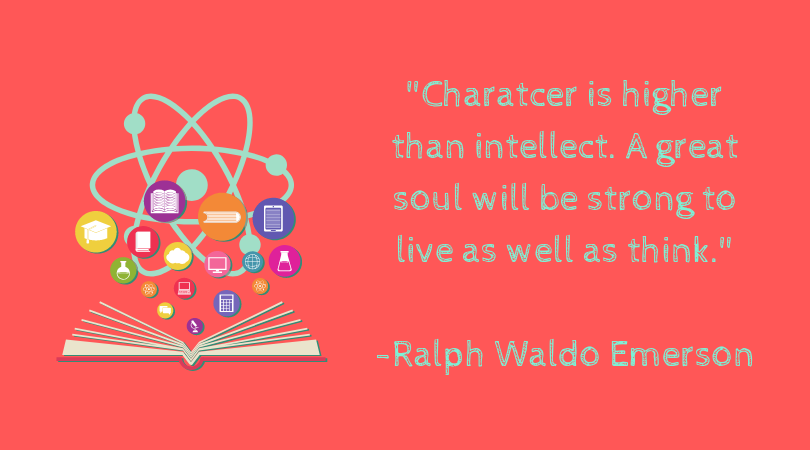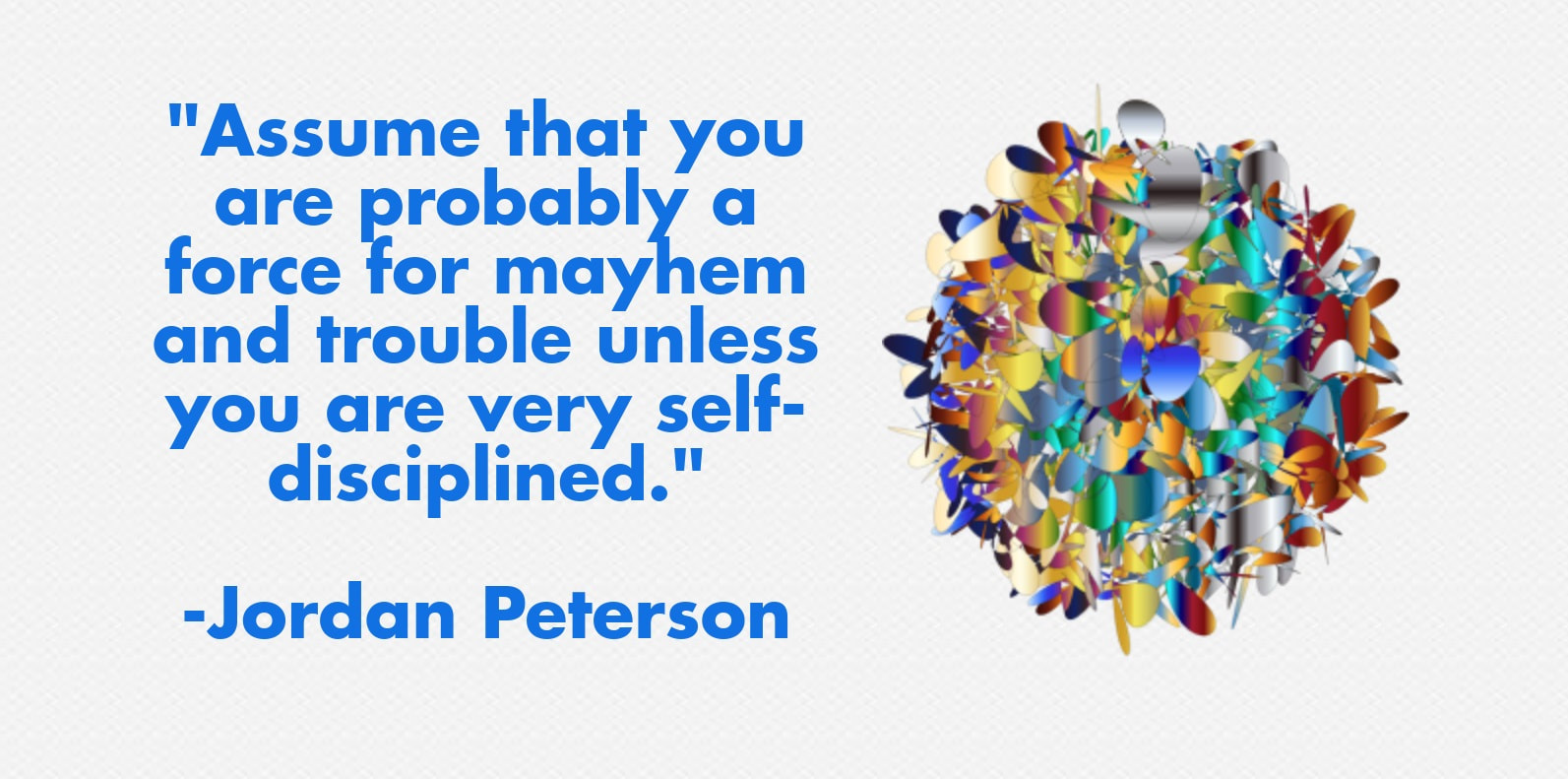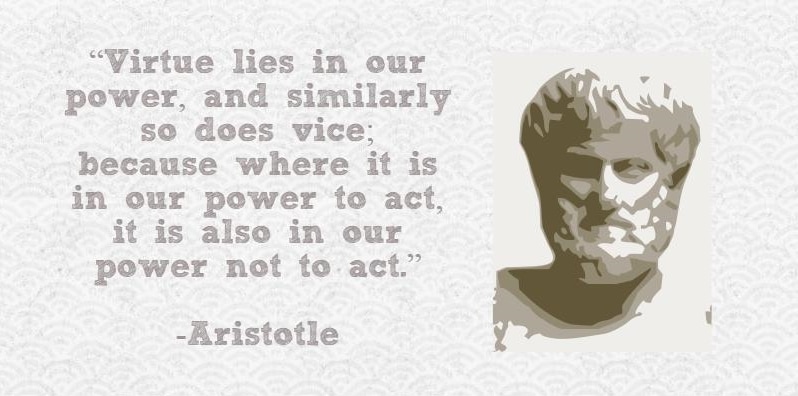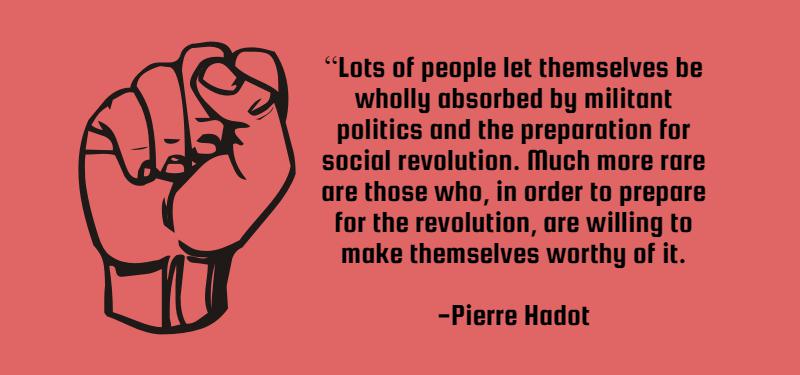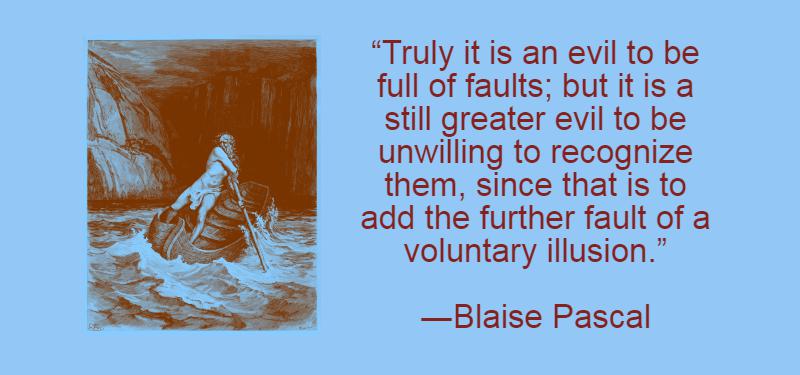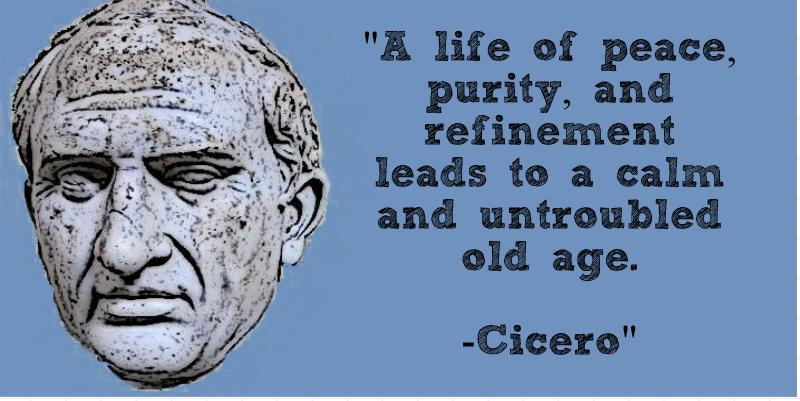The first part of the talk will be looking at what is moral beauty. We'll start with the ancient Stoics and we will fast forward about 1600 years to the Earl of Shaftesbury in England. Then we'll come up to contemporary times. How can we approach moral beauty? What does it mean for us today? And then the second segment of the talk will be some suggestions for how we can cultivate moral beauty today and make our lives more beautiful.
|
This guest post is a transcription of my friend Brittany Polat's talk at Stoicon 2023. It was previously published on Brittany's Substack, Stoicism for Humans, and includes the themes of virtue, moral progress, and Shaftesbury’s views on beauty and nature. I hope you find this very inspirational topic useful in your own life.
The first part of the talk will be looking at what is moral beauty. We'll start with the ancient Stoics and we will fast forward about 1600 years to the Earl of Shaftesbury in England. Then we'll come up to contemporary times. How can we approach moral beauty? What does it mean for us today? And then the second segment of the talk will be some suggestions for how we can cultivate moral beauty today and make our lives more beautiful.
2 Comments
It has been far too long since I published a new post in the popular According to Cicero series. Life got complicated and other topics seemed more pressing.
Wait no longer my friends! This month's post focuses on Cicero’s rules for good conversation which are still quite helpful to us in our modern lives. In de Officiis (On Duty), written in 44 B.C. E., Cicero wrote “There are rules for oratory laid down by rhetoricians; there are none for conversation; and yet I do not know why there should not be.” To remedy this situation, Cicero elaborated on 7 rules that he believed should govern good conversation: Albert Einstein notably said that, “Most people think that it is the intellect which makes a great scientist. They are wrong. It is character.” Einstein should know, because it was at his urging that Franklin D. Roosevelt initiated the Manhattan Project, which would develop the world’s first atomic bomb. Though he was not personally involved in the Manhattan Project, it was a decision which Einstein regretted his entire life – he was horrified by having contributed to the destruction that the bomb made possible.
In my estimation, we are typically educated so that we will get into the right college and be successful monetarily. Far less emphasis is placed on developing a strong moral character, which is often only an afterthought. If intellectual achievement outpaces the development of moral character, we get a population of people bent on being smart and successful but not much concerned about the needs of others. How does someone develop moral character? I'll give you a hint; not in school. The largest scientific study conducted on the subject concluded that school-wide character education programs produce no improvements in student behavior or academic performance. Moral character develops in the family and through exposure to various life experiences. Parents therefore need to be intentional about character education for their children, and in this post, I’ll give some tips for how to do it. Most of us want to think that we are a force for good in the world. But if we haven't done a lot of introspective work aimed at overcoming our own faults, it might be safer to assume that we are actually a force for chaos. Becoming virtuous usually involves self-discipline and a lot of difficult introspection.
Aristotle teaches us that those who are enslaved to passions, who never rise above their animal natures by practicing the virtues, do not have the most worthwhile opinions. Anger clouds good judgement. Those who exercise reason and attain practical wisdom on how to best live their own lives, order their household, and finally, when sufficiently wise and mature, should ideally venture opinions on how to best order the political community. Jordan Peterson is a Canadian psychologist and professor at the University of Toronto. Peterson echos both Aristotle and the same sentiment that I wrote about in my post A Revolution Inside. He argues that unless we both understand and have control of our own negative qualities (or shadow self) we will project our worst impulses into the political arena while wearing a "mask of virtue." We need to work on ourselves first if we want to be an effective force for good and not end up doing more harm. If we want to see the world change, we must first concern ourselves with healing our own lives. This guest post was first published at Freedom and Flourishing by my friend Winton Bates, who curated the following wise advice based on his vast knowledge and life experience:
The quotes selected for this post are related specifically to individual flourishing or personal development. I will follow this up later with a selection of quotes relating to the social conditions that favour human flourishing. Rather than selecting the most inspirational quotes I can think of, I have selected quotes that seem to support what I hope is a coherent set of propositions about human flourishing. The word hexis in ancient Greek means an active condition of moral virtue. Hexis is a kind of striving or working to overcome our passive habituation by strength of character. To become good, Aristotle essentially thought that you need to "fake it 'till you make it."
Hexis, or character, is defined as one's virtues or vices - not just any habit but something that affects when we feel pleasure or pain. Since moral virtue involves pleasure or pain, it is to our advantage to choose only those actions which don't cause us pain. We become well habituated by performing virtuous actions over time. These virtuous actions become real virtue when we start to choose them deliberately - when we are motivated by internal good. Recently my friend Dr. Greg Sadler launched the first in a series of new 45-minute webinars and in-depth online seminars developed and hosted by ReasonIO. His March webinar - which I participated in - introduces the basics of Aristotle's ethics. The video provides a short overview for those like me, who want to learn more about virtue ethics but don't have a ton of time to read. It's up on YouTube and I have embedded it below: Peace and justice are two goals which the politically inclined often seek, but they are simultaneously inner qualities which a philosophical person must posses, not just external conditions which we would like to see in the world. If we want to see the world change we must first concern ourselves with healing our own lives.
In Xenophon's Memoirs of Socrates, Hippias tells Socrates that instead of always asking questions about justice, he would do better simply to say, once and for all, what justice is. Socrates replies: "If I don't reveal my views on justice in words, I do so by my conduct." A modern parallel to Socrates' statement can be found in Martin Luther King's quote, "Peace is not merely a distant goal that we seek, but a means by which we arrive at that goal.” What Socrates wanted to show is that we can never understand justice if we do not live it. King similarly noted that we won't achieve peace through our actions if outwardly we are irrationally angry and inwardly we are a mess of anxiety and nuerosis. We can't expect the world to give us better than we give the world. In antiquity, philosophy was a way of life akin to therapy or care of the soul. Socrates, the Cynics, Aristotle, the Epicureans and the Stoics all stressed that we can achieve autarkia, or inner freedom independent of external events.[1] Autarkia is a self-sufficiency and peace of mind where we feel that we lack nothing, relying on our inner resources. To be liberated, we must turn our attention to the revolution within and to what we can control; our thoughts, emotions, and actions. In order to obtain autarkia or inner freedom, we must train ourselves for it. Since I write about ethics, virtue, and character there has always been a possibility that someone will ask what exactly makes me so great. The answer is nothing. I have faults like everyone else. I am however, continuously working to discover and overcome my faults. It's important to do this type of ongoing self assessment if you have any real interest in improving your character.
In ancient philosophy, arete, translated as excellence or virtue, was often held as the goal of a lifetime. Excellence can be developed through insight and habit. It's important to have insight about your negative personality traits if you want to change them. Usually just a small part of your total personality is actively holding you back and keeping you from flourishing in life as you might if your faults were corrected. Examining your own character flaws is actually not the easiest thing to do. We innately resist looking at our truly negative qualities as a matter of psychological self-preservation. So how can we identify and work with our own shortcomings? Uncovering your faults takes some maturity and courage. These 5 techniques inspired by the ancient philosophical tradition and Jungian psychology have helped me to gain more insight into my personal failings, and I hope they will be helpful to you as well. Just in case you missed it, my post about Stoic education for children ran on Stoicism Today a few weeks back.
I'll be publishing a new Common Sense Ethics post soon! Image: Credit Stoicism Today Marcus Tullius Cicero was a Roman philosopher, politician, lawyer, orator, political theorist, and constitutionalist.
Cicero lead by the example of his life, and by all accounts he was ethical, moderate, and constantly strove to better himself and gain knowledge. Like other Romans, he believed that we all have a duty to society, and he took his personal and civic responsibilities seriously. Consequently he set a great example of maturity and personal growth, and his advice is worth taking seriously today. I have gathered some of his best quotes into the post below. You can be sure that regardless of your age, you lack maturity if you do these 5 things: |
Don't Miss A Post!Sign up to receive updates and special announcements! Thank You For Subscribing to Common Sense Ethics!You have successfully joined my email list. About Me:Thank you for your interest in Common Sense Ethics! I'm Leah, a librarian and freelance editor with a background in history and philosophy.
Most Popular Blog Posts:3 Unpopular (But Likely Correct) Opinions According to Cicero Download My Stoic Printables For Tough Days:
Watch Common Sense Ethics On YouTube:
|

